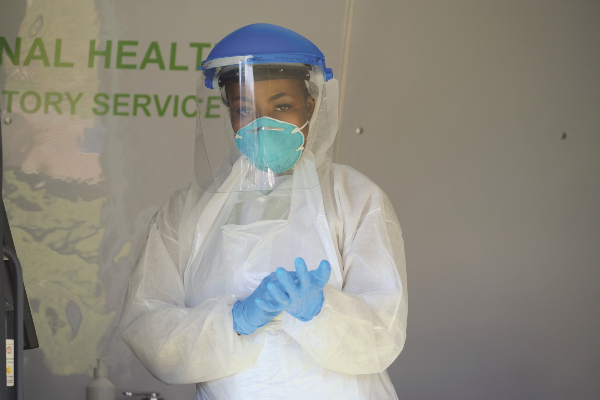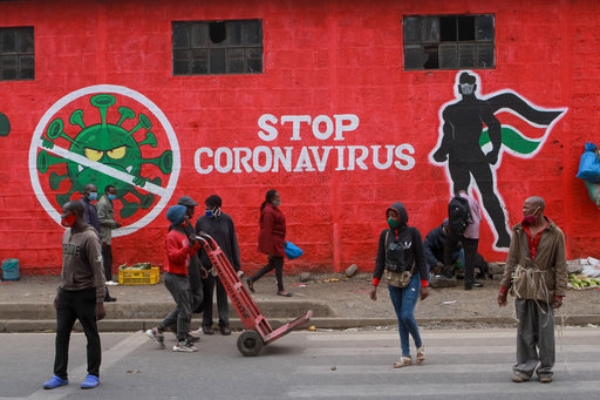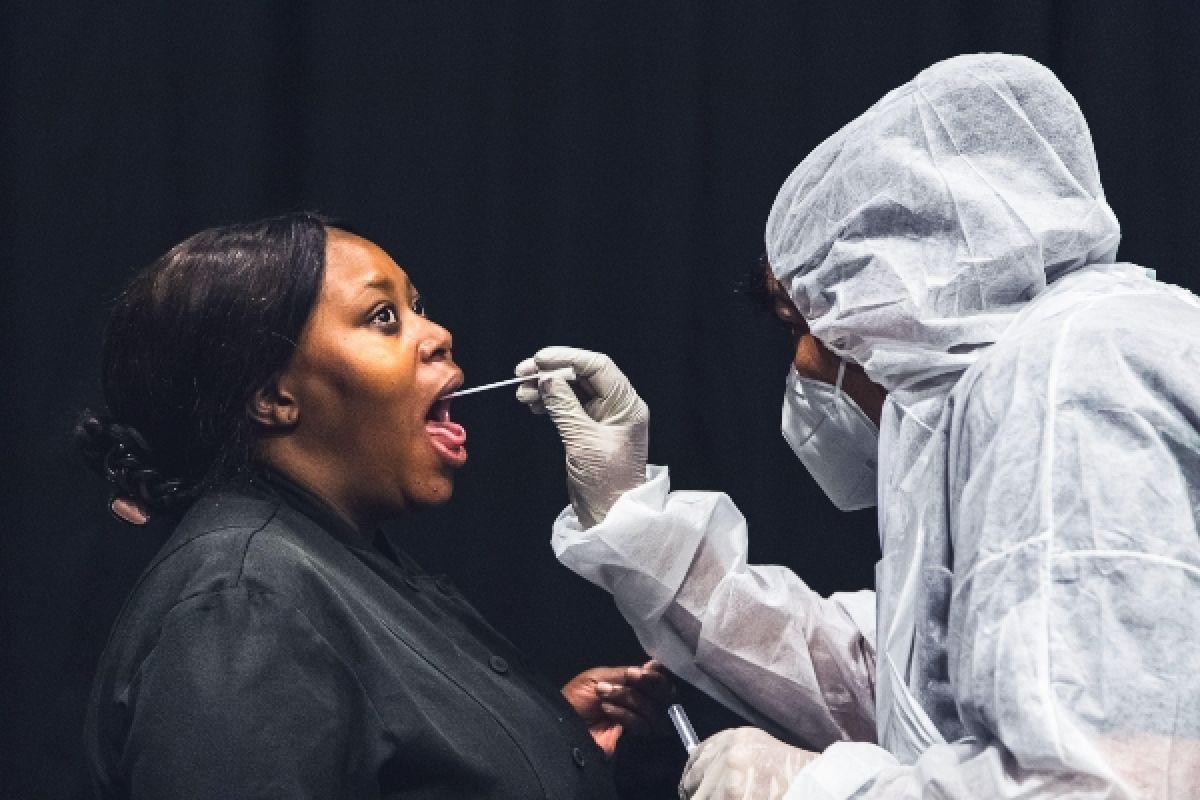A scientist with a PhD in chemistry, President Magufuli abandoned Covid-19 testing after his own trials allegedly showed fruit juice tested positive for the virus. Yet despite being widely ridiculed at the time, many are asking whether the late Tanzanian president was right, with European courts declaring tests unreliable – while the inventor of the Covid-19 PCR test is facing a multi-million-dollar law suit for ‘misleading’ world governments. By Sonia Elijah.
In May 2020, the former chemistry teacher and late-Tanzanian president John Magufuli made a speech that has since been removed from much of the internet. In it, he revealed that he secretly sent samples of goat meat and fruit juice to the country’s official PCR testing lab – and the samples came back as 'positive' for the novel coronavirus.
Magufuli’s simple stunt threw into question the claim that PCR tests were the ‘gold standard’ for diagnosing Covid-19, as the SARS-CoV-2 virus is commonly known in the media.
The statement unleashed ridicule and condemnation against the president from the rest of the world and led to him being smeared as a ‘Covid-denier’ in Western media. The BBC, for instance, incorrectly reported that Magufuli ‘used the results to justify his denial of the virus’.
However, President Magufuli never denied the existence of the Covid-19 – he simply questioned the accuracy of the PCR test used to diagnose the virus.
Now, almost a year later, and questions surrounding the reliability of the PCR tests are growing louder. Christian Drosten and the other scientists who created the PCR testing protocol used to ‘diagnose’ Covid-19 are being sued by the top trial lawyer Dr Reiner Fuellmich in a historic class-action law suit in Germany and the US.
If successful, it could lead to national governments being sued by businesses and individuals over lockdowns, mask mandates and other restrictions imposed on the basis of ‘positive’ Covid-19 tests.
The law suit against Drosten and his colleagues was spurred by an independent review of their ‘gold standard’ Covid-19 tests by 22 international scientists, which claims to have exposed 10 major flaws of the way the PCR tests were being used to detect the virus.
The alleged flaws and conflicts on interests of the scientists behind the tests, led Fuellmich to declare that ‘those responsible for it must be criminally prosecuted, and sued for civil damages'.
Dr Mike Yeadon, former vice president and chief scientist of Pfizer, who co-authored the review, highlighted another major flaw with the PCR test in ‘its propensity to suffer from contamination’.
He said that the ‘integrity of a PCR is very easily destroyed by invisible levels of contamination even in the hands of an expert, working alone and on a small handful of samples’.

The Nobel-prize winning inventor of the original PCR method, Kary Mullis, famously said in 1993 that his technology was never meant to diagnose a virus, adding: ‘It doesn’t tell you that you are sick. These tests cannot detect free, infectious viruses at all.’
This crucial fact was completely ignored many years later by countries around the world that bought millions of PCR tests to conduct mass Covid-19 testing on their citizens, many of whom were ‘asymptomatic’ – showing no symptoms of being sick with the virus.
There is mounting evidence that shows the PCR test is unreliable, resulting in false-positives and was never designed to test for a live virus. Dr Pieter Borger described the PCR test as having ‘no relevance for the diagnosis whatsoever’.
While Dolores Cahill, Professor of Translational Science at the University College Dublin, warned early on in the pandemic that ‘a positive PCR coronavirus test may testify to the presence of the common cold’.
Concerns about the use of PCR tests are growing around the world. The pathologist Dr Clare Craig explained, for instance, how one Spanish study showed that ‘87 per cent of people in hospital who tested positive for Covid on PCR had not been infected according to antibody testing’.
‘Even for those with Covid on intensive care, 53 per cent did not have antibodies.
‘Every test can go wrong and we can check how well they are working by comparing with other tests.’
Her concerns about the reliance on PCR testing is shared by the public health scientist Abir Ballan, who told NewsAfrica that it is possible that the test could have ‘picked up some other viruses that are closely related to SARS-CoV-2’, adding: ‘The E gene used in the PCR test, as described in the Corman-Drosten paper, is not specific to SARS-CoV-2.’
Interestingly, while Thailand, a country applauded for extremely ‘low’ Covid levels, screens for up to six genes, many of the countries hardest hit by Covid-19, like the UK and the Netherlands, are known to have run a high percentage of their tests using this flawed single-gene approach.
In the UK, for instance, 38 per cent of all positive test results in the first week of February 2021 had been screened for just one gene, raising serious questions about the true extent of the number of Covid-19 cases and deaths as a result.
But it’s not just the tests’ inability to distinguish between different viruses that concerns Ballan. She fears that the samples are being amplified to such an extent – known as ‘cycles’ – that they are picking up traces of dead virus in patients who were previously infected and have since recovered.
Nick Hudson, the South African who co-founded the international research group Pandemics Data & Analytics, told NewsAfrica that PCR testing was ‘being deployed in the wrong way.’
He doesn’t doubt President Magufuli’s claims that engine oil, fruit and meat tested positive for Covid-19, adding that ‘its sensitivity is being ramped up to an absurd level’ that everyday items like tap water have been returning false positives for Covid-19.
‘Cycling these tests up to such an extreme sensitivity has given rise to this notion of the ‘asymptomatic’ case – another medical absurdity.’
Hudson, like most independent scientists, scoffs at the notion of asymptomatic spreaders of the virus, questioning how someone can spread a respiratory disease ‘if you don’t have symptoms’.
It’s a position supported by several studies around the world, which found little or no evidence of asymptomatic or pre-symptomatic spread.

This hasn’t stopped labs running tests on people without symptoms, though. In Canada, for example, not a single province has run tests below the suggested 30 cycles. While one province, Quebec, has run tests as high as 45 cycles.
This has led to inflated ‘cases of Covid-19’, according to the scientist.
It’s a problem Hudson thinks may be common in South Africa too.
He revealed that one lab he had contacted had been running tests at up to 42 cycles – something he described as ‘utter madness’.
Hudson fears the mis-use of PCR in this way may have led to thousands of healthy people being incorrectly misdiagnosed as infectious, and, in turn, contributed to the government’s decisions to impose draconian lockdowns that have impoverished millions and led to economic stagnation in the African powerhouse.

Such examples led Dr David Bell, a former World Health Organization (WHO) programme head, to praise President Magufuli’s response to the virus.
He told NewsAfrica that the late-Tanzanian leader was one of the few world leaders to correctly follow the WHO’s guidelines for dealing with a respiratory illness.
‘There is not compelling evidence elsewhere that mass PCR testing has averted significant Covid-19 mortality, once community transmission is well established,’ explained Bell.
‘Magufuli had a science background and would have understood that PCR tests are appropriate for detecting sequences of genetic material, not as a sole way of defining ‘cases’ as is used, against WHO advice, in many other countries.’
The WHO has repeatedly warned against mass-testing of asymptomatic people.
This apparent misuse of PCR testing by countries like South Africa and Canada hasn’t gone unnoticed beyond the scientific community.
In November, 2020, an appeals court in Portugal made a landmark ruling stating that ‘the PCR process is not a reliable test for SARS-CoV-2, and therefore any enforced quarantine based on those test results is unlawful’.
The judges, Margarida Ramos de Almeida and Ana Paramés, referred to several scientific papers on the PCR tests, including a study by Jaafar et al, which found that when running PCR tests with 35 cycles or more the accuracy dropped to three per cent, meaning up to 97 per cent of positive results could be false positives.
With evidence mounting against PCR accuracy, the WHO issued a warning statement on December 14, that using a high CT value will result in false positives and advised labs to use the ‘positivity threshold’ recommended by the manufacturer.
Meanwhile, just two days after President Magufuli was laid to rest in March, an Austrian administrative court acknowledged the limitations of PCR and antigen testing, declaring ‘PCR tests have no diagnostic value’. This view was echoed in April by one of Germany’s lower courts, which described PCR tests as not ‘suitable for determining an ‘infection’ with the SARS-CoV-2 virus’ and ordered the lifting of various restrictions in the region in question, Weimar.
Yet despite growing legal and scientific support for his warnings about PCR misuse, Western coverage of the Tanzanian president’s funeral repeated many of the earlier slurs against him, deploying dog-whistle terms like ‘African leader’, ‘Catholic’ and ‘Covid denier’, while omitting his scientific credentials.
The use of such phraseology smacks of ‘prejudice’, according to ex-WHO scientist Dr David Bell, who thinks the Tanzanian should be applauded for his approach to the pandemic. Magufuli rejected the Chinese-inspired lockdowns embraced in the West and Western-leaning African countries like Nigeria, South Africa and Kenya, and encouraged Tanzanians to go about their everyday lives instead.
‘Magufuli followed the evidence-based pandemic guidelines released by WHO in 2019, and those of the US CDC,’ explained the American.
‘These did not envision mass business closures and restrictions on religious freedom. Most Tanzanians are of relatively young age, are not obese, and so are at very low risk from SARS-CoV-2 infection. He acted as you would expect a well-trained scientist.’
With yet more court cases slated over the use of PCR testing and the lockdowns they triggered, Bell thinks there will be a major re-assessment of Magufuli’s legacy.
Even the BBC, whose coverage of President Magufuli’s response to the pandemic has been particularly scathing, has been forced to acknowledge major flaws with the PCR tests recently, after its flagship Panorama programme sent an undercover reporter to work at a UK lab earlier this year.
The journalist discovered a series of bio-security breaches, leading to cross-contamination of samples and potential misdiagnoses of Covid-19 during its so-called ‘second wave’.
Whether such breaches led to over-inflated death figures will be difficult to prove.
But with the test branded ‘not fit for purpose’ by an increasing number of scientists, perhaps world leaders should have taken heed rather than ridicule the former scientist in their ranks.




